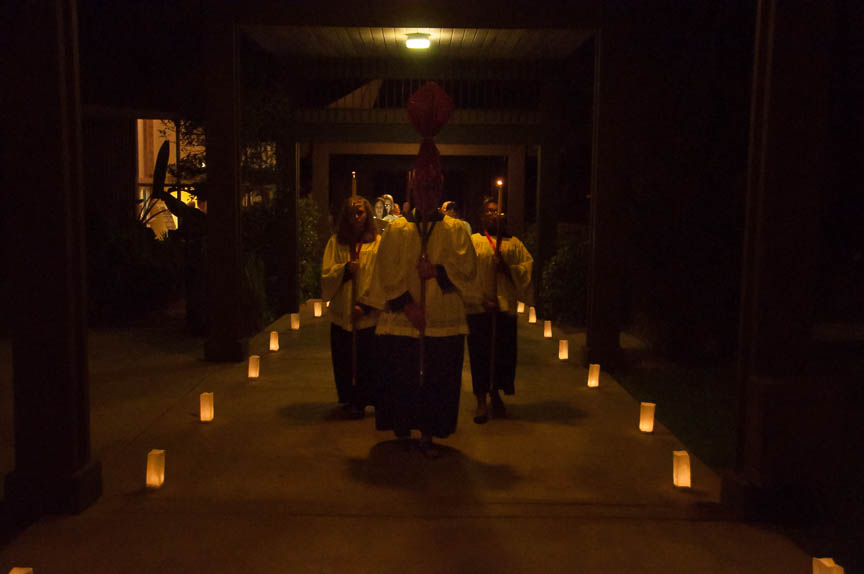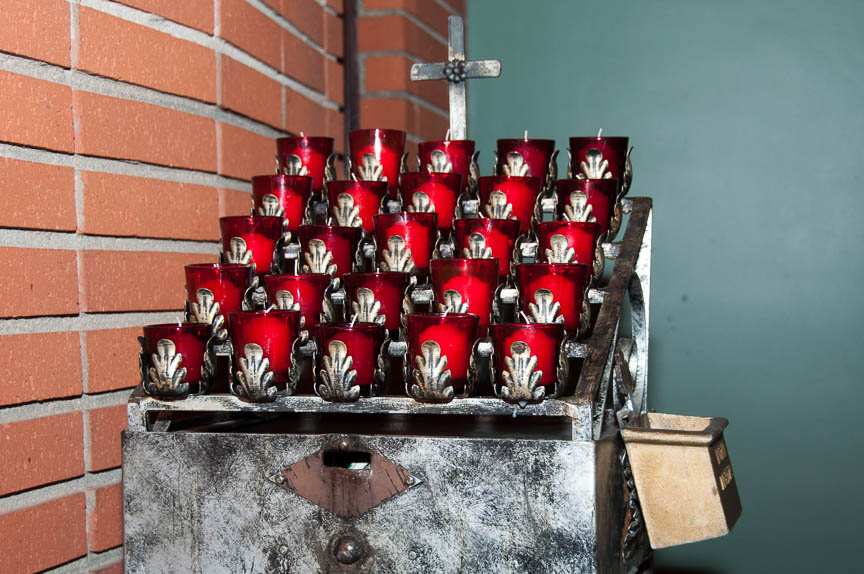 Thoughts and prayers: a phrase symbolizing compassion has instead become a sign of political callousness. How do we move forward? Maybe some other thoughts and prayers.
Thoughts and prayers: a phrase symbolizing compassion has instead become a sign of political callousness. How do we move forward? Maybe some other thoughts and prayers.
“Why do you allow violence in our schools, God?,” reads the meme, answering its question with God’s excuse that he is not allowed in public schools. You know the story: back in the 1960’s, the courts ended the ritual of beginning the school day with a Christian prayer, and it’s all been downhill since then. If only we could get back to being the Christian nation we once were, God would protect us once again.
In the wake of dramatic tragedies like the school shooting in Florida, we find ourselves shocked to discover that we are not exempt from the chaos and violence that engulfs so much of the rest of the world. Yes, people in other parts of the world (not to mention in other parts of our country) experience violence, but not us. We are God’s favorites, and as long as we use his name, and ask his blessing on whatever it is we are doing, we will be safe. The bargain isn’t working? Repent, and turn back to the good old days.
The ancient Israelites of Old Testament stories had the same idea. If they just kept performing the ritual prayers and sacrifices God would stay happy and safely on their side. The Israelites were shocked to hear from the prophets that their God had not signed on to that deal. The prophets proclaimed that empty rituals did not fool the Almighty–behavior was what mattered. You can read the Biblical books of Amos, Isaiah, Micah, or Hosea for some details on how all that worked out.
Superstitious rituals placated the gods of other nations, but the people of Israel were invited into a unique relationship with the God of all. Thoughts and prayers were not enough. Repentance and justice were required.
justice were required.
For Christians, Jesus demonstrates that same message. In the Gospel of Mark, which we are reading now in church, Jesus seems almost frantic with the urgency of his calling, rushing from place to place proclaiming the news of repentance and the Kingdom of God. There is no time to waste. The Kingdom of God is here, and you have to decide where you belong. We see Jesus demonstrating his power against the forces of evil and chaos, casting out demons, ending illness–demonstrating the victory of life over death. We see him do battle, armed not with an AK-15, or even the First Century equivalent, but wielding the strength of sacrificial love. In the ultimate confrontation Jesus chooses the weapon of the cross, and with that symbol of defeat wins the final victory. Thoughts and prayers? Jesus would never stop there.
Joining the Resistance
This story doesn’t surprise us, but maybe its relevance does. In our baptism service, those being baptized are asked choose sides, three times by renouncing the powers of evil, and three times by pledging to follow Christ. In the Baptismal Covenant we recognize this choice to be ongoing and active, promising to “persevere in resisting evil, and whenever [we] fall into sin, repent and return to the Lord.” Jesus calls us to follow and we promise that we will. No spectators.
Where is God in this tragedy? Now we are ready to answer. Certainly God is present in the wake-up call: We are not the country we imagine ourselves to be. We haven’t been paying attention to the impact of violence in our society. We have let our children become victims. Now that we are awake, it’s time to make some decisions. First we repent, turning away from the empty faith that allowed us to be spectators. We embrace the call to resist evil and hope for better. Now we indulge our thoughts and prayers.
Thoughts and Prayers, revisited
Thoughts–what options do we have? As followers of Jesus we chose sides, following him into the battle against the forces of wickedness, but the weapons he gives us, ones of love and sacrifice, seem weak. Tempted to imagine we can do better, we might want indulge in the polarization and demonizing that characterize our national debate. But let’s not dismiss Jesus so quickly. Armed with love, we can, for example, value all lives in a real way. Instead of dismissing the voices we don’t want to hear, we can have the courage to recognize we don’t know everything. Following Jesus means reconciliation and community, not political points. We recognize that all options are on the table, calling our American insistence that guns are somehow the sacred exception to rules what it is: idolatry. Worshiping God, not guns, our thoughts are a rational pursuit of answers. Finally, let’s recognize that this battle for the Kingdom of God is fought on many fronts. Some might work to reduce violence in our community, others seek to build community, while others try to help the mentally ill, and others pursue political solutions. Evil is huge. Hope is bigger.
From such thoughts, our prayers will follow. Not the empty prayers of ritual and politics, but the empowering prayers of faith. Prayers for courage and insight, prayers for reconciliation and healing–such prayers are powerful because they do not end with the “Amen,” but compel us out into God’s world to be the instrument of his peace. Empty ritual excuses, but real prayer provides the foundation, energy and inspiration for action. Now we are ready to pray.
Thoughts and prayers—our hope or our excuse for inaction? It all depends on who we are following.
